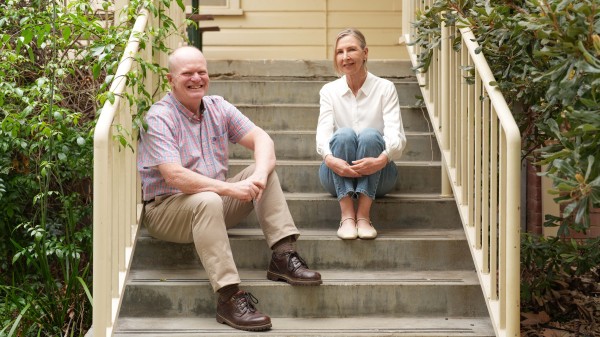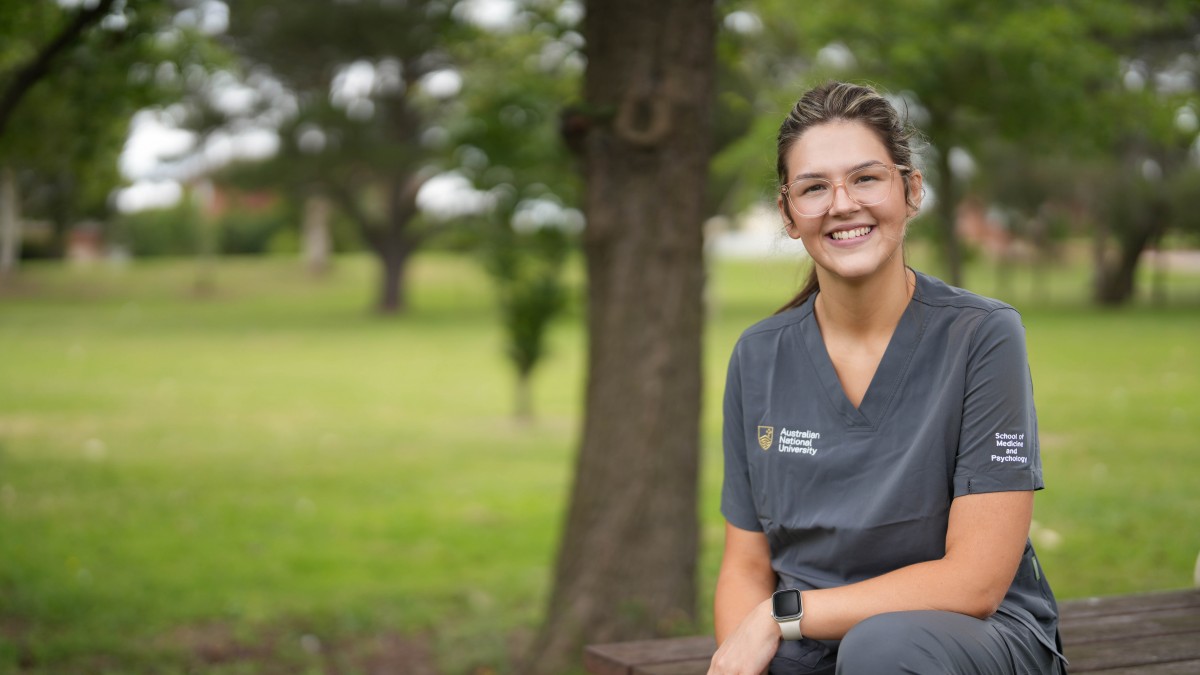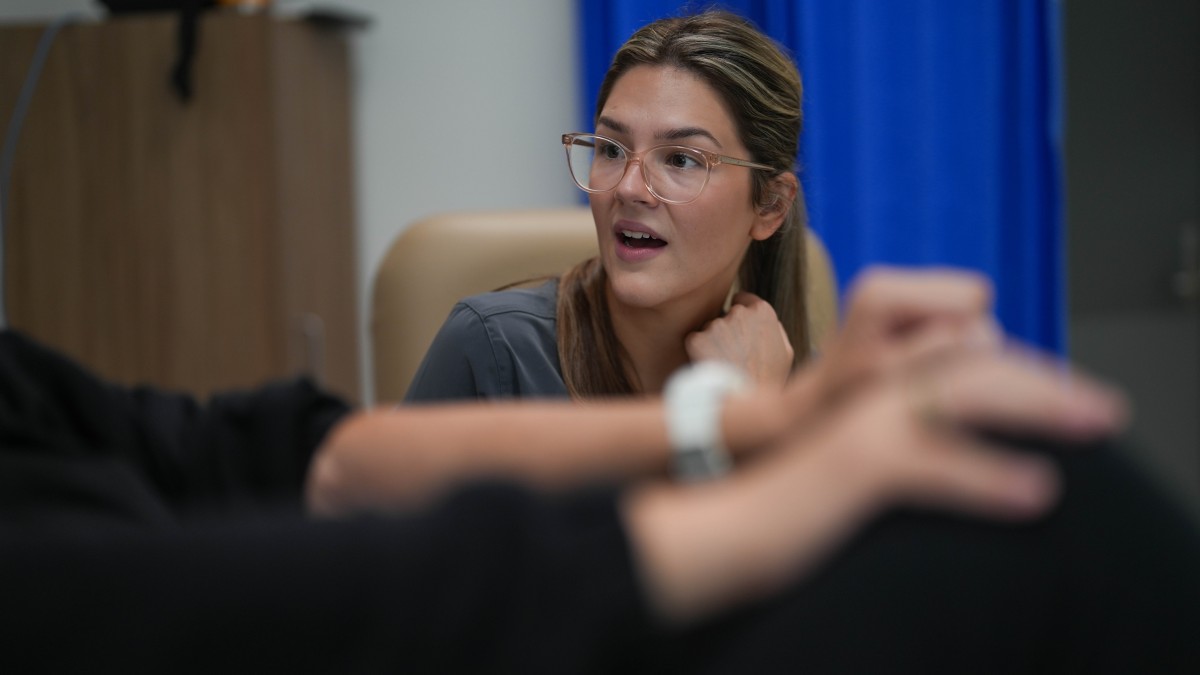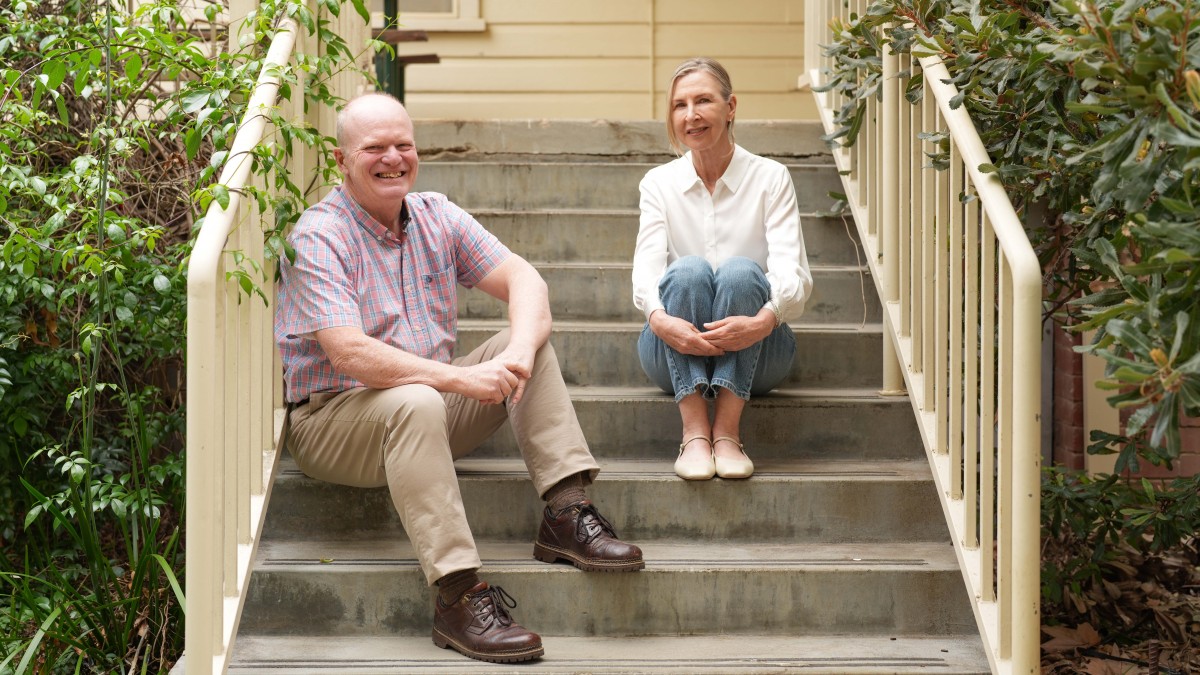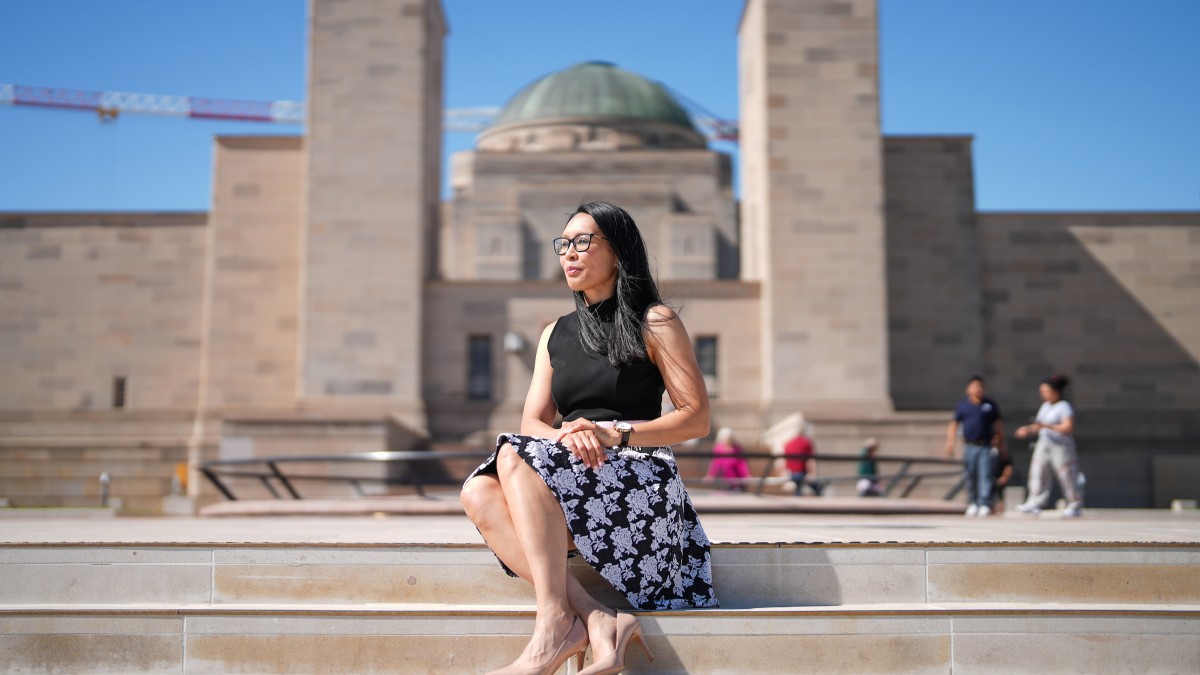For Taylor Glover, something had to give.
The fourth-year Doctor of Medicine and Surgery (MChD) student at The Australian National University (ANU) was working three jobs during her second year, and her grades were slipping.
Ms Glover, a Dharawal woman from Wollongong, had been speaking to Amanda Wingett, a lecturer in Indigenous Health at the ANU School of Medicine and Psychology, and Dr Stewart Sutherland, Associate Dean First Nations at the ANU College of Health and Medicine.
It was during these discussions Ms Glover found out about the Jessica King Scholarship, an annual scholarship aimed to assist an Aboriginal and Torres Strait Islander student to undertake the MChD program. Dr King was the first Indigenous graduate of the program in 2014.
“After I had discovered and worked out my Indigenous heritage and culture and started contributing to that space through research and practice, it was brought up that there was this scholarship,” Ms Glover said.
“I was working three jobs before I got the scholarship.
“I was trying to get income and my grades were slipping and something had to give. And Amanda had suggested this scholarship and she said it's there, it's there to help you get through medicine successfully.
“When that came along, I was so grateful because I got to tone it down with work.”
Dr Sutherland said the Jessica King Scholarship was a key asset for Indigenous students at ANU.
“It’s designed to be flexible, and designed to be Aboriginal and Torres Strait Islander only, which is good for us and the students coming through,” Dr Sutherland said.
“It means that Indigenous students don’t have to compete for scholarships with others who may have had greater opportunities in schooling and life, and it allows the students to focus on their study.
“Especially in the first two years – phase one – when they’re learning all the medical science.
“Medicine is divided into two – you've got what we call phase one, the medical science and classroom-based learning with a little bit of clinical, and phase two, which is in the hospital, your apprenticeship years if you want, and you do a little bit of classroom based learning, so it’s completely flipped.
“In the first two years, so much information is thrown at you quickly and you’ve just got to keep up, so having scholarships that allow you not to have to think about money quite as much takes the pressure off and can be really advantageous.”
Ms Glover recently finished her three-week rural placement at Goulburn in the Chisholm Ross Centre, training in psychiatry at Goulburn Hospital.
She will also do placement in women's health and acute medicine (ICU and emergency), before finishing the year in senior medicine (surgery).
Ms Glover said the ANU School of Medicine and Psychology’s referral program was one of the nation’s best.
“I think that you learn more when you're rural because there's less competition against junior doctors and other people for the consultant's time.
“So you get a lot of one-on-one time with the senior staff, which is unique to rural practice.”
The Jessica King Scholarship made it more reasonable for her to take up regional placements, Ms Glover said.
“I don't think I would have been able to stay in medicine [without the scholarship],” she said.
“It probably wouldn't have happened. It's allowed me to stay in medicine comfortably.
“It also gives me the flexibility to come out and do these placements because it means I don't have to have work lined up or to stay in Canberra to work.
“I'm still working and doing nannying in the evenings, but it means that I don't have to kill myself working – doing so much work and studying full time ... medicine's hectic, it's full-time. When you're in medicine and surgery, it's 10-hour days, plus the study, plus trying to fit in life and social stuff.”






